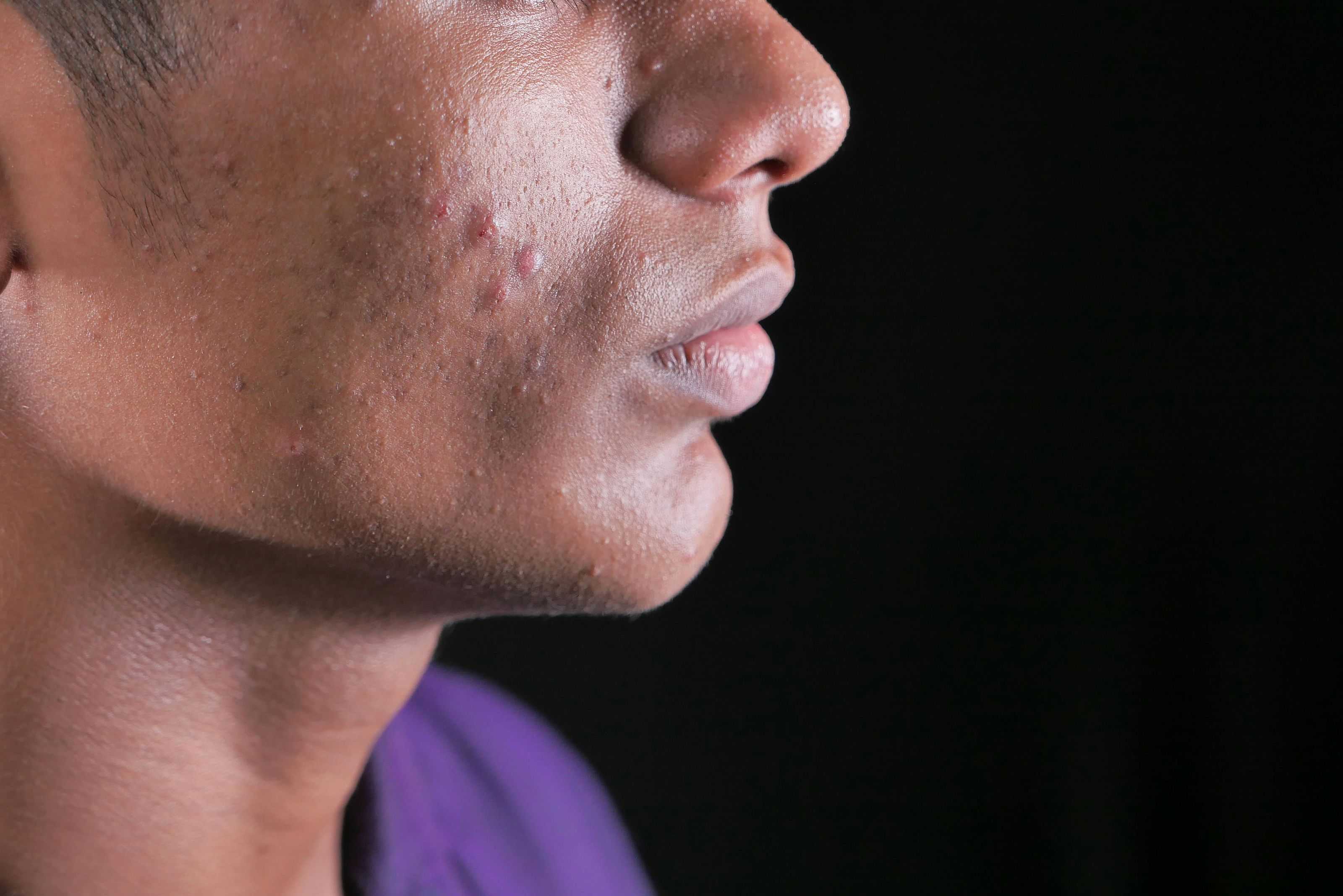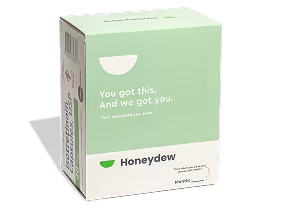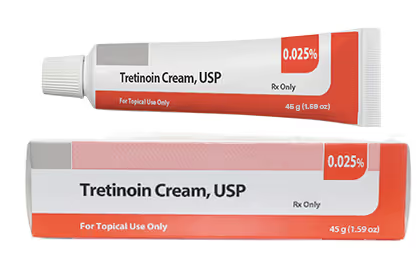Key Takeaways
- Accutane is a powerful retinoid that greatly reduces breakouts.
- It’s a vitamin A derivative that reduces the secretion of oil glands to clear skin and unclog pores.
- Accutane may have serious side effects, so speak to a dermatologist to see if Accutane is right for you.
Nothing throws a wrench in your life like a bad acne breakout. For some adults and teenagers, breakouts are inconvenient. But for others? Breakouts occur all too frequently, harming the skin, producing scarring, and lowering self-esteem.
Now, more and more acne treatments are rising to the foreground. One powerful treatment is Accutane, the FDA-approved oral medication. Read on to learn more about Accutane.
What is Accutane?
Accutane is an oral, FDA-approved acne medication and is part of the retinoid drug group.
Retinoids can be very effective. However, it’s crucial to use Accutane (and other retinoids) cautiously so as not to dry out your face, as dehydrated skin can cause irritation, dryness, and discomfort. These side effects are only temporary, and once your skin is accustomed, retinoids are well tolerated!
How Does it Work?
All retinoids (Accutane included) are derivatives of vitamin A. What does this mean, and why is it important? Studies indicate that specific forms of vitamin A decreases sebum production.
Sebum is the gland that produces oil in your hair follicles to ensure proper hair health and skin elasticity. However, when your glands produce too much oil, it can clog pores and lead to inflammation and acne breakouts.
Accutane rebalances your oil production by decreasing the size of the sebaceous glands that produce oil.
Who Benefits Best from Accutane?
Accutane can be an aggressive acne treatment. Because of that, this medication is best suited for those suffering from chronic, moderate, or severe acne breakouts.
It’s also a good pick for people with milder forms of acne who have tried other options and still can’t seem to get clear skin.
Low dose Accutane may be an interesting option to consider, as side effects are extremely dose dependent and studies show that the same efficacy can be reached at lower doses over a longer period of time. While it may take longer (1-2 years), you will likely experience clear skin throughout and for the long term, rather than being on and off other treatments for many years.
The Pros of Accutane
Accutane presents patients with many benefits. Unlike other medications, Accutane is tremendously effective for clearing up severe acne cases, and many patients have seen success with Accutane where other oral treatments have failed.
How effective is it? Some studies put Accutane at an impressive 90% success rate, far superior to any other acne treatment competitor.
Another benefit of Accutane is that it’s an oral pill, which means it’s easy to use and doesn’t require messy oils, creams, or tinctures.
Lastly, Accutane is only intended for short-term terms ranging from six months to one year.
Want to learn more about how Accutane can help you? Contact Honeydew professionals today.
The Cons of Accutane
As mentioned, Accutane is a potent retinoid medication, which means that patients can see unwanted side effects from regular use as they initiate the medication.
The biggest downside of Accutane use is that it dehydrates the skin. Since Accutane targets the sebum glands, it can prevent your body from producing the necessary hydrating oils.
Dry skin also has other unwanted side effects, like a tight, itchy face, skin that’s prone to cracking, and an increased risk for bacteria and infections. A great way to combat that is with a non-scented, non-comedogenic moisturizer.
It can be tempting to desire Accutane the moment you see a breakout looming, but Accutane is a commitment that individuals have to educate themselves on regarding the benefits and cons of this medication.
.png)
The Side Effects & Dangers of Accutane
Even though Accutane is wildly successful at treating acne (when other treatments fail), that doesn’t mean it’s without side effects.
As mentioned, Accutane can dry out the skin. Some other side effects that can occur are chapped lips, sensitive skin, nose bleeds from dryness in the nasal mucosa tissue, aching joints, increased thirst, increased sun sensitivity, and headaches.
Most of these side effects are temporary and monitored from month to month. As a result, you must have lengthy discussions with your physician and dermatologist before beginning Accutane to ensure this medication is right for you.
Is It Worth It?
The answer greatly depends on your acne journey, to what degree your acne affects your quality of life, and if other treatments are effective or ineffective.
The truth is that suffering from chronic, severe acne can seriously damage one’s self-esteem and can even lead to social anxiety or depression.
If you believe Accutane is right for you, speak with your dermatologist to fully understand the benefits and drawbacks of Accutane.
Want to learn more? Speak to a Honeydew professional today.























